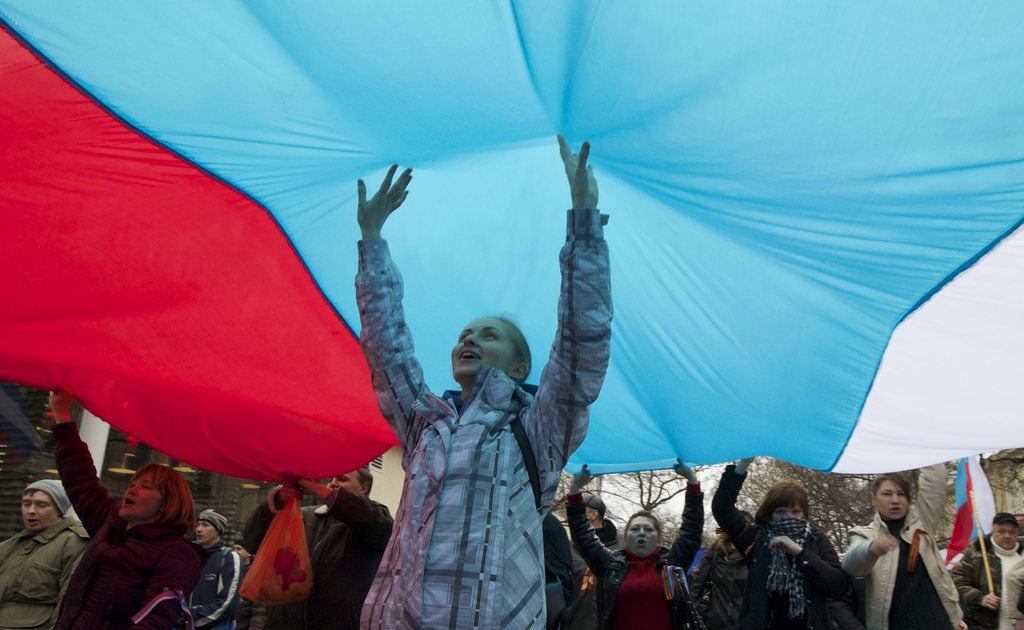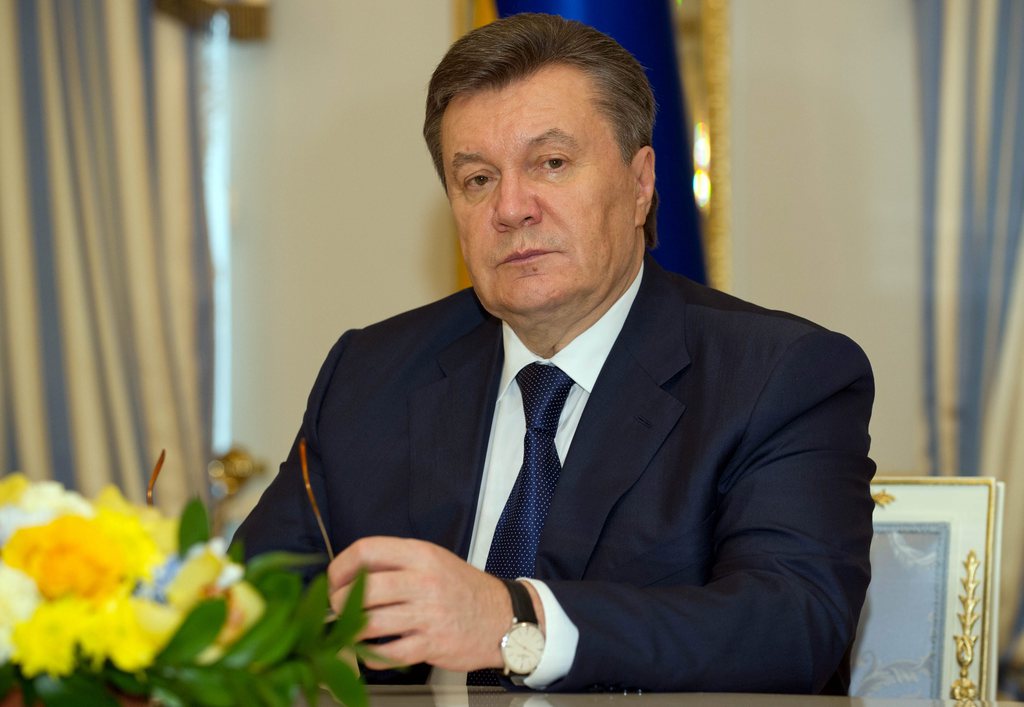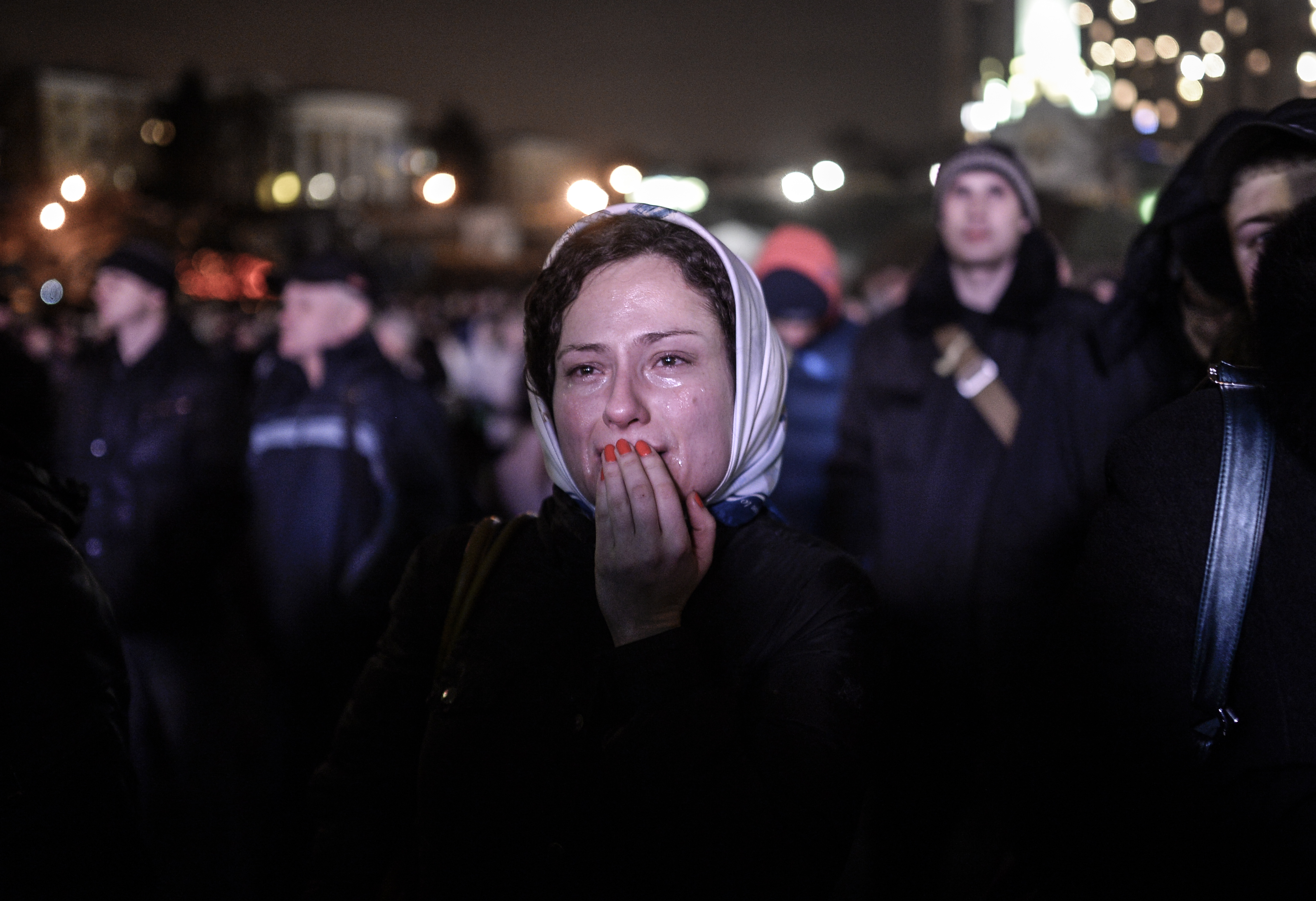Putin’s power unchecked in Ukraine

The Swiss media doubt Western influences can stop Russian President Vladimir Putin from taking what he wants in Ukraine and turning the country into a Russian vassal state. But an all-out war would have major fallout for the Ukrainian people and all of Europe.
An analysis in the Tages-Anzeiger newspaper begins with a nod to Putin’s “victory” with the recent Winter Olympics in Sochi, and compares it with his “victory” in Ukraine’s Crimean peninsula: “There was no speech to the nation, no declaration of war to the world. The head of the Kremlin doesn’t need any of that because he’s already reached his goal: Russia has taken control of Crimea”.
Because no one wants to start a war with Russian over Crimea, the Tages-Anzeiger sees the West as “powerless” in the face of Putin’s takeover. On the basis of Russia’s 2008 war with Georgia it predicts that the United States and other powers will probably react only halfheartedly. Although the paper’s commentator ultimately foresees a “frozen” conflict with the Ukraine, similar to the situation in Georgia, she does warn of what could happen if the Ukrainians decide to fight back: “Putin would be forced to conduct an open war over Crimea, which would have indefinite consequences for Russia, Ukraine and all of Europe.”
The Organization for Security and Co-operation in Europe (OSCE) is trying to convene an international contact group on Ukraine.
Speaking in Geneva at the UN Human Rights Council on March 3, Swiss President and Foreign Minister Didier Burkhalter, who holds this year’s rotating OSCE chairmanship, urged all players to help defuse the crisis.
He said the contact group would support Ukraine during its period of transition and coordinate international aid.
Putin’s power play
The French-language Le Temps newspaper agrees that Putin is currently running the show the way he wants, comparing him to a firefighter who first lays a fire, exacerbating tensions so as to be able later to play the saviour and use Ukraine to “create a black hole around the capital of [his] empire”. He may succeed, the commentary continues, because “no one is ready to die for Crimea”.
But Le Temps also warns that the West cannot afford to react as it did in Syria, where it let Russia do as it pleased. “It cannot shy away from taking decisive action.”
In an interview with Swiss public radio RTS, Green Party senator Luc Recordon took a harder line: while distancing himself strongly from Putin and his policies, he said that Europe and the United States had been very “stupid” in some of their actions, and that some of the groups supported by the US are “fascists”.
Recordon – a member of the parliamentary foreign affairs committee who is just back from a Council of Europe meeting on Ukraine – described European action as “pathetic”, and regretted that it had not enforced the terms of the accord signed between Ukrainian President Viktor Yanukovych and opposition groups on February 21.
He also pointed out that the Russians have interests in the Crimea which should not be disregarded. “If you want to calm the Russians, you have to give them long-term guarantees that the treaty governing their base in the Crimea will not be challenged,” he said. This would help restore EU credibility with the Russians. “Russian policy is totally unacceptable, but what hasn’t been done to provoke them over this matter?”
Recordon added that OSCE chair Switzerland, “one of the rare countries to still have some credibility with Moscow”, can play a significant role in mending ties.
As for the Neue Zürcher Zeitung (NZZ), its commentators view the Ukraine and its people as the biggest losers in Putin’s takeover because “in the near future, the country won’t have a universally accepted government any longer”. In view of that fact and Putin’s unwillingness to draw new borders between Ukraine’s pro-Russian and pro-European regions, the NZZ foresees small territorial secession wars like the ones that resulted in region’s not-formally-recognised territories of Transdnistria and Abkhazia.
In the end, the NZZ commentators conclude, “Putin’s sabre rattling will only create losers. That fact is clear today, even amid all the uncertainties.”

In compliance with the JTI standards
More: SWI swissinfo.ch certified by the Journalism Trust Initiative












You can find an overview of ongoing debates with our journalists here . Please join us!
If you want to start a conversation about a topic raised in this article or want to report factual errors, email us at english@swissinfo.ch.